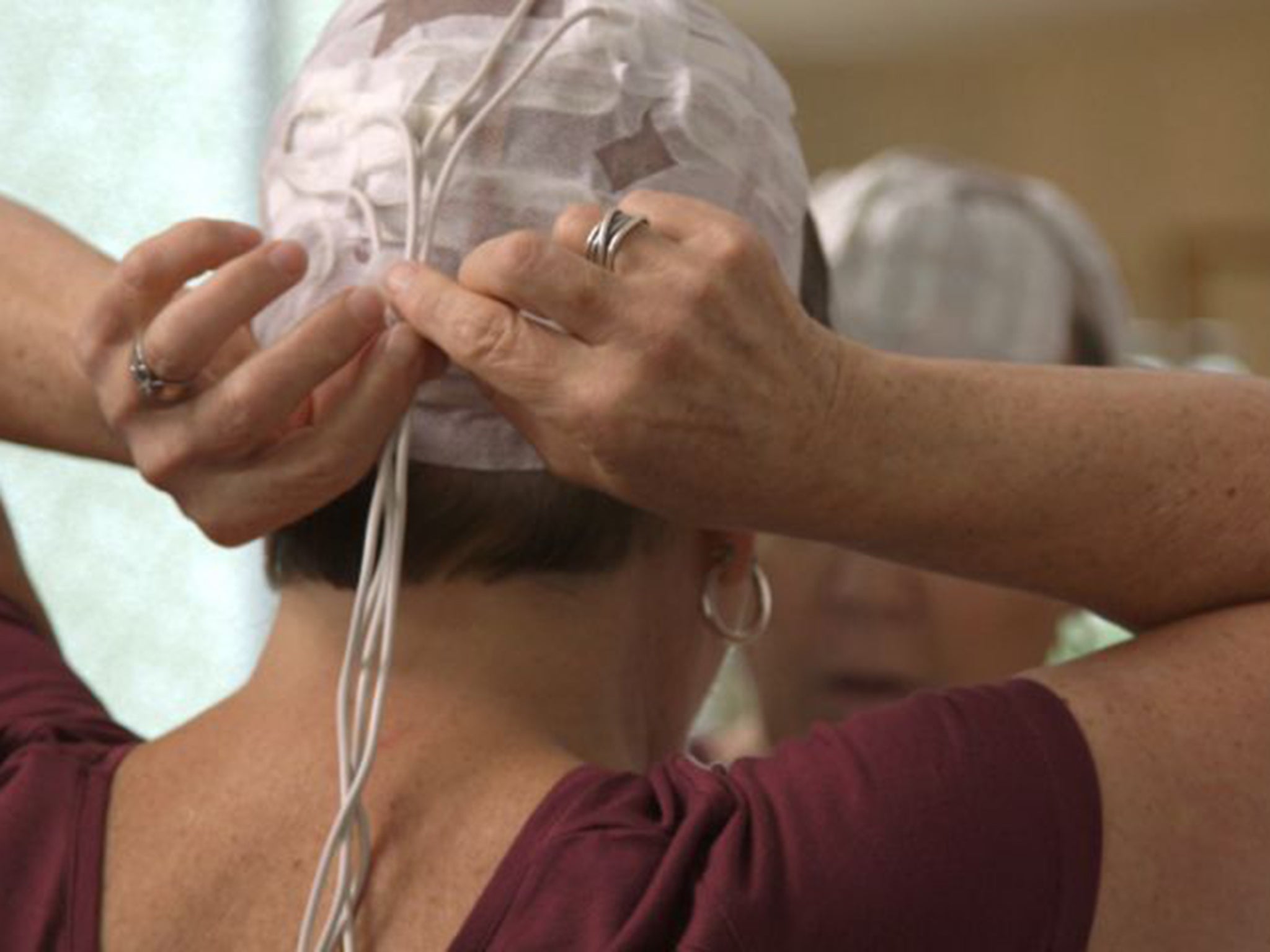NovoTTF-100 'anti-cancer hat': It's the beginning of a new era in the treatment of brain tumours

Your support helps us to tell the story
From reproductive rights to climate change to Big Tech, The Independent is on the ground when the story is developing. Whether it's investigating the financials of Elon Musk's pro-Trump PAC or producing our latest documentary, 'The A Word', which shines a light on the American women fighting for reproductive rights, we know how important it is to parse out the facts from the messaging.
At such a critical moment in US history, we need reporters on the ground. Your donation allows us to keep sending journalists to speak to both sides of the story.
The Independent is trusted by Americans across the entire political spectrum. And unlike many other quality news outlets, we choose not to lock Americans out of our reporting and analysis with paywalls. We believe quality journalism should be available to everyone, paid for by those who can afford it.
Your support makes all the difference.As a doctor and a brain tumour patient myself, I know only too well this is the sort of hopeful news we desperately need to hear.
For the past decade, brain tumour research has essentially ground to a halt. Cancer researchers’ attempts to devise new chemotherapy drugs have been thwarted at every turn by the brain’s very own defence system. The so-called “blood-brain barrier” acts like a force field to keep poisons out of the brain. Researchers have found it practically impossible to develop medicines that will penetrate this biological barricade.
In 2008, I was diagnosed with a slow-growing malignant “glioma” brain tumour. It forced me to leave medicine, and although it was surgically removed, it is expected to recur as a glioblastoma. What is more exciting than the prospect of a longer life is what this represents. Not since chemotherapy was discovered some 50 years ago have we had anything new to fight cancer with. This “tumour treating fields” technology is a completely new method of medicine. Improvements to the current model are planned while the technology is set to be used on lung, pancreatic and ovarian cancer.
Cancer research conferences aren’t normally very exciting places. But when Professor Roger Stupp stood up to speak at the annual Society for Neuro-Oncology meeting in Miami last year, there was a palpable hush. He announced an experimental “anti-cancer hat” – “a new standard of care for patients suffering from glioblastoma is born”. I hope he’s wrong. I’m hoping this isn’t just a new brain cancer treatment but the beginning of a new era for how all cancers are treated.
Join our commenting forum
Join thought-provoking conversations, follow other Independent readers and see their replies
Comments